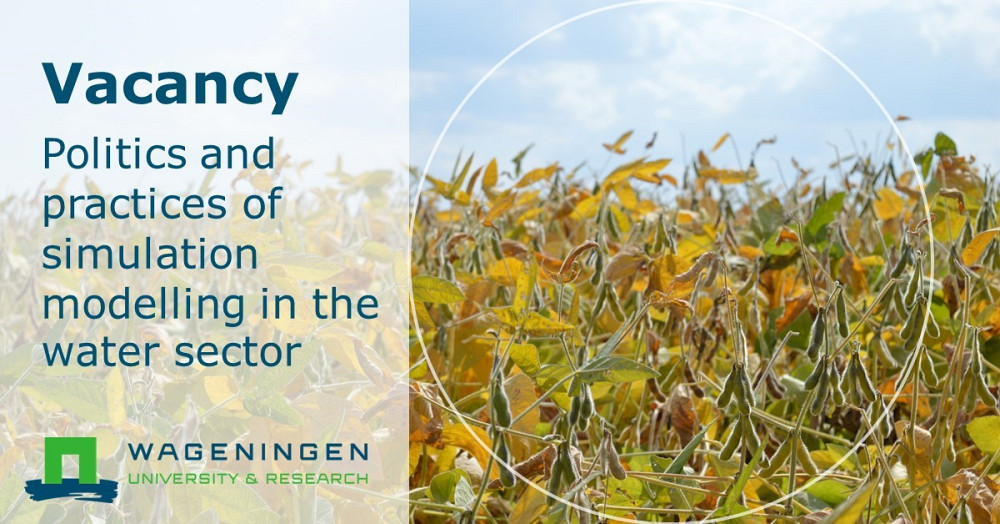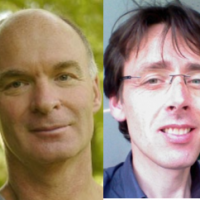[External call for recruitment] The Politics of Knowledge in Water Resources Management: the case of simulation models.
NEWAVE’s supervisors Prof. Rutgerd Boelens and dr. ir. Jeroen Vos, members of the Water Resources Management group at Wageningen University & Research, invite applications for a PhD programme in Politics and practices of simulation modelling in the water sector. This Phd position is not part of the 15 NEWAVE ITN Marie Curie ESR/PHD Positions but the selected candidate will have the possibility to join several activities of the network and will be offered a NEWAVE external affiliation.
The call is open till 8 May 2020. More information on the vacancy is available here.

Amsterdam, May 1, 2020 – Wageningen University & Research (WUR)’s group on Water Resources Management (WRM) is recruiting a PhD fellow to conduct a study to “open the black box” of modelling processes, performances, and politics on any aspect of the water sector.
Knowledge in Water Resources Management
«There is no singular, universal WRM knowledge to be ‘discovered or unearthed out there’». This is one of the premises of the social constructivist science paradigm in which the Water Resources Management (WRM) group, at Wageningen University & Research (WUR), operates. Rather, we all need to deal with a situation where multiple knowledge and realities are constructed using different grounds for claiming the truth.
Building on this assumption, the WRM knowledge appears to be not ‘neutral’ or ‘independent’, but rather knowledge and truth claims are highly subjective, conceptually-laden and politically charged. What approach to research should we then favour to address these dimensions? The call is for ontological and epistemological explicitness, while paying tribute to questions of ownership and political perspective. Whose knowledge counts and for what purpose?
The WRM group builds on three key characteristics of knowledge in the WRM field:
- Its disciplinary origins in a technocratic community of engineers that is slowly incorporating more cross-disciplinary approaches engaging with a variety of (social) science disciplines;
- Its rootedness in problems that are highly complex, characterised by a considerable dose of uncertainty, both of which are reflected in the predominance of (crisis) discourses that emphasize the need to act by (over)emphasizing one particular aspect or assumption (whether this is Climate Change, efficiency or sustainability); and
- Its strong connection with practice and interventions, and programmes and projects in the development world, as reflected in its problem solving orientation and its tendency to overemphasize particular expert knowledge while discrediting others through so-called narratives (e.g. the climate change narrative).
Targeting these features, the group at WUR contributes to more inclusive and democratic water knowledge creation, validation and use processes to be fostered by water professionals, water user organizations and water governance networks and alliances.
Politics and practices of simulation models
To scrutinize the politics behind knowledge and truth claims in the WRM field, the WRM group employs a variety of conceptual approaches to different thematic areas. One of this fields concerns the politics and practices of simulation modelling in the water sector.
Simulation models are often-used tools for informing water management decisions. They are likely to involve multiple actors and stakeholders, on the one hand, and performance indicators and scenarios for possible futures, on the other. Such models are often presented as ‘objective’ knowledge upon which crucial decisions on water management are based. Presented as objective, “truth-making” tools, models can thereby be “black boxed”, meaning that the expert knowledge in building them is not adequately examined for the underlying assumptions, suppositions and even politics. While model inputs are often restricted to particular indicators privileging certain perspectives better than others.
Additionally, modelling outcomes can be strategically used to legitimize political choices, while models and scenarios themselves are already the result of political processes involving conscious and unconscious choices. In these respects models can be seen as inherently political.
From here the call to “open the black box” of modelling processes, performances, and politics on any aspect of the water sector. The WRM group at WUR is recruiting a new PhD student to broadly engage with the main research questions: How are different forms of simulation modeling for supporting water management developed? What information/knowledge do they provide and to whom? How and why these models are based on certain assumptions and theoretical and empirical choices? How these models are deployed to support certain political choices? How do their results influence water governance, and its effect on equitable distribution of benefits and impacts (e.g. in terms of water and food securities)?
The call is open till 8 May 2020. More information on the vacancy is available here.




